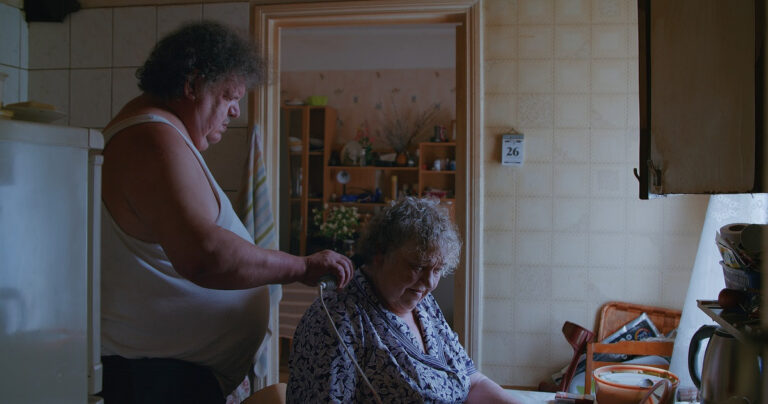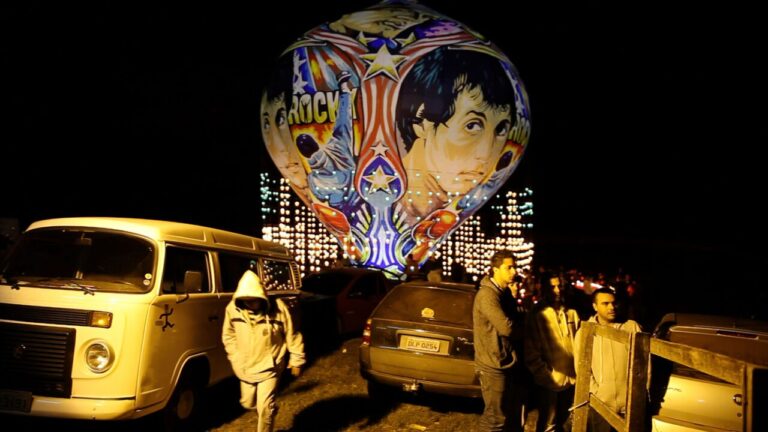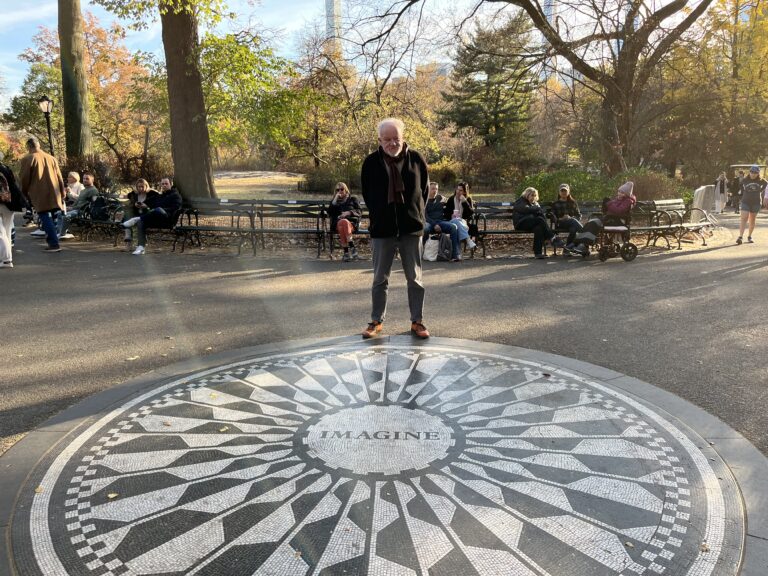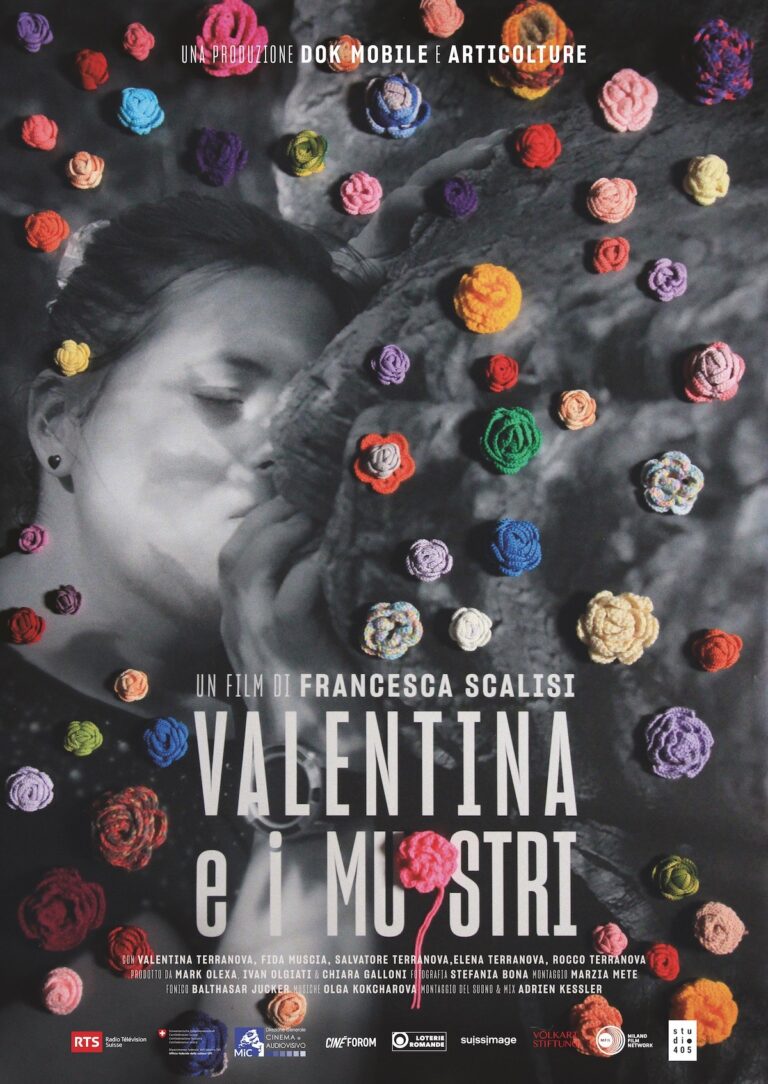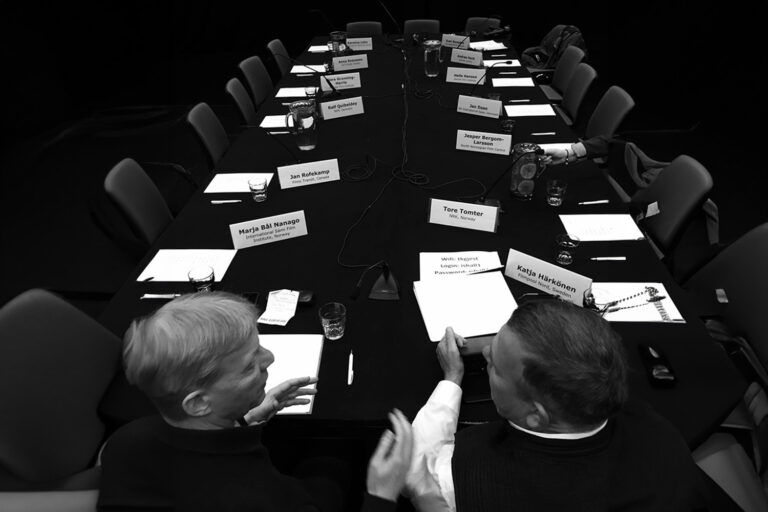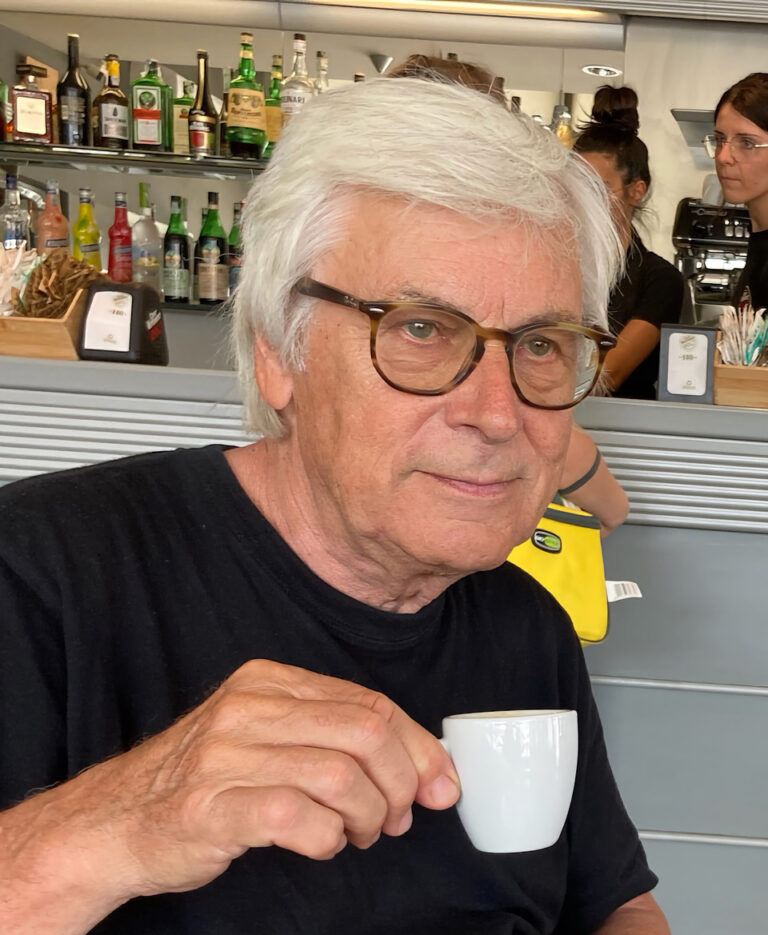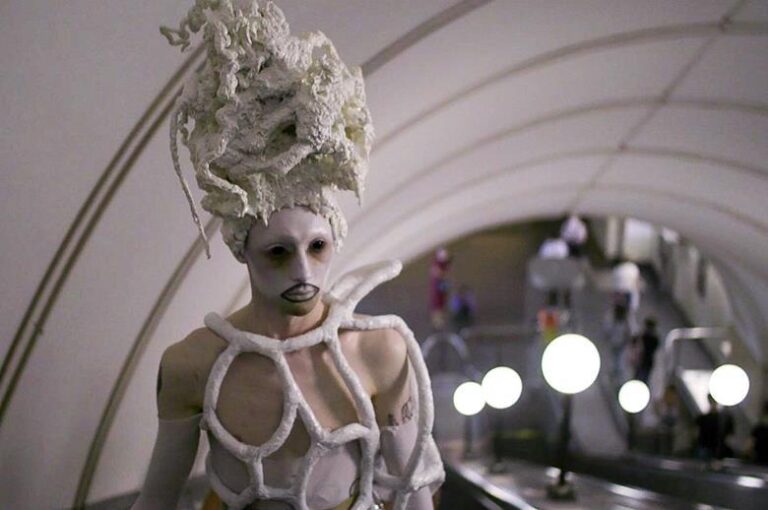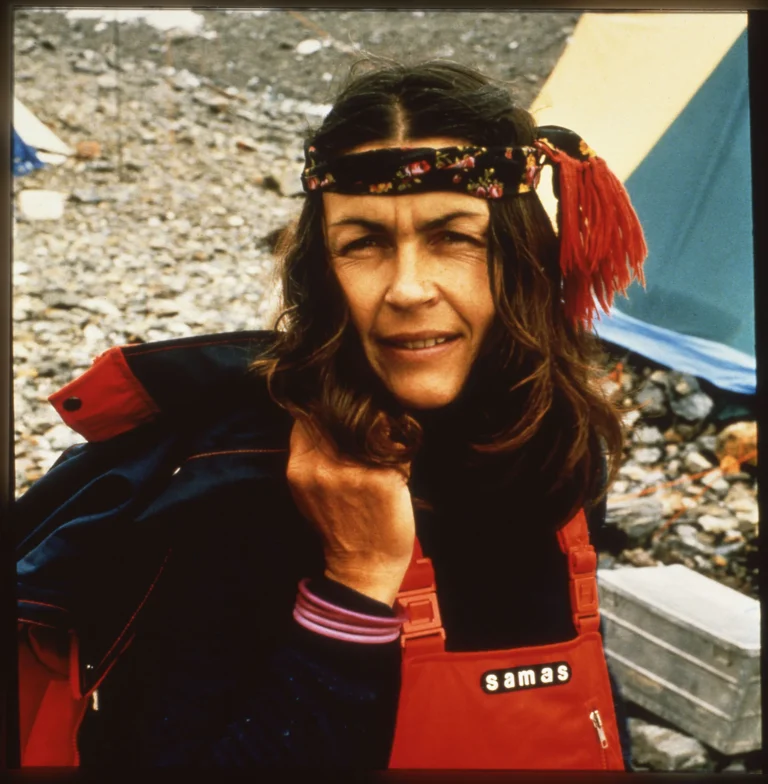The never ending discussion of what is a documentary… Do you remember the story about the good old direct cinema icons (Leacock, Maysles, Drew, Pennebaker…) were sitting together on the first row at a festival, where Werner Herzog “attacked” them for saying that through documentary films you convey the truth, when you go by the “rules”: Don’t ask anyone anything, just be there with the camera, observe, catch the moments, be the famous fly on the wall… An anecdote perhaps but good to remember this filming method. Of course you don’t get the truth, Herzog was right and the icons knew that – but they have left great films that are still watchable and have a place in film history.
I would say that Ivars Zviedris is closer to the cinema verité than to Werner Herzog and his way of documentary filmmaking, and far away from the many films of today, which are named (terrible word) hybrid. During the many years of the Baltic Sea Docs meetings with Ivars and his films, I have grown to be an admirer of him and don’t hesitate to call him a true observational documentarian.
Ivars has lived up to what I, when teaching at film schools and festivals, dare to say should be the basic qualities, the dna of a maker, who wants to create stories from reality or actuality; two words from the vocabulary of the Scotsman John Grierson back in the 1930’es, when HE made his definition of what is a documentary. You should be curious, you should be able to get close to your theme and your protagonist(s), work out of respect and with a point of view. Ivars does so, he is grounded, has no elitist or academic ambitions, works far away from what is being called “l’art pour l’art” at the same time as he is – to stay with the French language – an “auteur” in writing his films. And, when he is at his best, he gives the audience the feeling (to use a phrase of Richard Leacock) of “being there”.
And ethically he goes to the limit, when it comes to what you can allow yourself as a documentarian. The example is of course “Documentarian” (2012), where he includes himself in the story about Inta , the charismatic elder woman living in the countryside, who first throws Ivars out, rejects to talk with him. Gradually a friendship grows between them until Ivars, dressed up for the occasion, has to tell Inta that he does not come to visit any longer… Why, she says, so you only came for the film and not for me? Furious she is, but changes her mood: Ivars, we could make another film together… You can see that Ivars does not like the situation at the same time as he has to finish a film. I have used the film again and again to have a discussion of the ethics: how close can you go in the human relations you have built with your protagonist. When do you stop filming? When do you stop your relationship to your protagonist.
In many ways his newest film “Faithful until Death” raises similar questions. Is Ivars exploiting the generosity of Māra, when she invites him in to film her and her husband Ivars – they are, however, not married after 24 years together – in her house in the countryside. She trusts filmmaker Ivars, it is obvious, he has gained her trust, she addresses him in – let me give you my impressions up-front – what turns out to be interpreted by Ivars as a love story, a chamber play about life and death, a description of poor social conditions, a dialogue with lines that could have been taken from Samuel Beckett. Like in his plays humor and seriousness walk hand in hand.
Māra and Ivars (the couple, same name as director) are introduced in a wonderful scene outside their house, where he pours water on her head to get the soap out of her hair. A true love scene for me that is followed by a scene in their kitchen, where she asks him to curl her hair in the neck. Beautiful. And Ivars, the director, puts on the screen a text: the two of us are one”. Could have been the title of the film!
The point of view of the director is thus declared from the very start and then, slowly, the story takes shape. Reality. Ivars used to be thin, Māra says, we have seen him and his huge (the subtitles say “hefty”) belly introduced and this becomes the red thread until the very (literally) end. She knows where it goes with the big man and says “we need to get married, Ivars” in one moment, the next one, addressing Ivars the cameraman and us the viewers “you are dragging me to hell” and she again and again says that she should have left him. “I don’t need that old man any longer”, is one of the sentences she expresses which is written on the screen. But she takes care of him.
About herself she says that she carried scissors in her stomach for years, forgotten to be taken out by the doctor, when she had a kocher gallbladder operation as a young woman.
Ivars is a pensioner after illness, and the belly grew from food and beer and vodka.
Lovely Māra changes from laugh to tears. She talks funnily about her three previous husbands, who all passed away (!) with alcohol involved and then she changes to “all BIG Ivars does is eat” and she serves him with sandwiches. If she is the one, who invites Austra, we are not informed, but this strong side protagonist comes to help Ivars and Māra with some massage, including pushes in the butt (!) to increase their blood circulation!
Austra is important for the film as a side character to the protagonist, and she is also filmed in her own house in a very sad scene with her drunken son Valdis, “the prodigal son”, who shouts for vodka and poses for the camera with his religious mother, who is present in the film as the one, who characterizes Māra as a servant for Ivars.
Similar to “Documentarian”? Yes, in the mix of tragedy and comedy, in its total love to the protagonists, so greatly conveyed to the viewers in the scenes in the house, and in ONE picture in the end, when the camera catches Māra standing alone in the picture after the rust truck leaves with Ivars in the coffin. You see a woman who suffers and tries to figure out how life can go on. Also: How will she be able to stay in the house, it seems she can not get any help from the authorities…
Again, as in the first scene of the film, Ivars makes his point, his love declaration to the two “who is one”, he brings an epilogue with Māra and Ivars, of course.
I don’t have any complaints but I don’t really get the role of the kid and her parents. Māra says to her “your fate is doomed” referring to the father cheating on her mother… Or?
There is no music in the film, thanks for that, on the contrary Ivars Zviedris is not purist in that respect. He is always looking for storytelling solutions. When he puts titles in the picture, sentences from the dialogue of Mara and Ivars, it makes the story more light and easy to grab for us in the audience; a Brechtian take?
And music he is using brilliantly in his previous short film from 2023, “Gravediggers”, where men with shovels invite the viewers to get close to, what it means to have that profession. Music is also in “Bach versus Covid” with the musician, who sits on the empty main square in Riga with his cello, stylistically it is a clear documentation. By the way it is nice to see the tourist square without any people – my comment.
Getting close to elderly women and portraying them with respect… Zviedris does that in “Documentarian” and “Faithful till Death”, but he also gets (almost) close to the male “Lumber Jackets”, a classical observational documentary with charismatic characters and excellent cinematography. With quite strong conflicts between them and those who employ them. Cinematically lovely sequences of trees falling.
In the film from the prison Brasa that was closed in 2019, “See you never Ever”, Ivars demonstrates how easy it is for him to get in contact with the inmates and make them talk. He is curious and pretty far from having an academic approach. He listens. Both here and in “Lumber Jackets, well in all mentioned works, Ivars visits members of the working class in society, befriend them, gain their trust, let them be protagonists and not victims. Latvia must be proud to have a filmmaker like that!
Tue Steen Müller
Copenhagen, December 15 2024.



